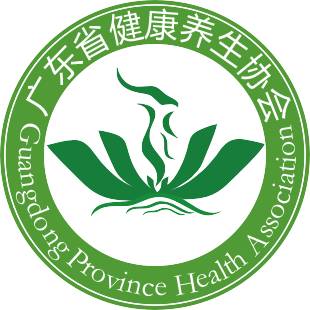

Health Guide: As the weather begins to turn cold, the number of patients suffering from wind-cold coughs increases. Since medicine can be toxic, dietary remedies for wind-cold coughs are the most effective. Do you know what dietary remedies are available for wind-cold coughs? Below, I recommend 16 methods.
Wind-cold coughs are classified into wind-cold and wind-heat
Traditional Chinese Medicine (TCM) believes that coughs are generally related to the lungs, spleen, and kidneys. The causes of cough can be external or internal. When the body cannot adapt to changes in external climate, external coughs occur, which can be divided into wind-cold coughs and wind-heat coughs.

Wind-cold coughs are primarily characterized by headache, nasal congestion, clear nasal discharge, initial cough with throat itchiness, expectoration of thin white phlegm, pale red tongue, and thin white coating. Treatment should focus on dispersing cold and stopping cough while transforming phlegm. One can take TCM formulas such as Xiao Ke Chuan (消咳喘), Jie Ji Ning Kou Wan (解肌宁嗽丸), Ban Xia Lu (半夏露), and Tong Xuan Li Fei Wan (通宣理肺丸). Below are dietary remedies for wind-cold coughs.
Wind-cold cough dietary remedies1. Cola Boiled Ginger
One slice of fresh ginger, appropriate amount of cola, boil and consume. Cola boiled ginger has certain effects in dispersing cold, stopping cough, and invigorating the spirit, which can help treat colds and alleviate coughs. In addition to its positive effects on colds, cola boiled ginger can help warm the stomach, relieve pain, promote gastrointestinal motility, and accelerate blood circulation.
2. Radish and Green Onion Soup
One radish, six green onion whites, and 15 grams of ginger. Boil the radish in three bowls of water until cooked, then add the green onion whites and ginger, and reduce to one bowl of soup. Consume the entire mixture at once. This soup helps to disperse lung cold, relieve exterior symptoms, transform phlegm, and stop cough; it treats wind-cold coughs with excessive phlegm, accompanied by chills, body aches, and fatigue.
3. Roasted Orange
Place an orange directly over low heat and continuously turn it until the skin turns black and steam rises from the orange. Let it cool slightly, peel the orange, and have the patient eat the warm segments. Larger oranges can be consumed in several portions, while smaller ones can be eaten whole, 2-3 times a day. This method is indeed effective for transforming phlegm and stopping cough, and it is more palatable and nutritious than medicinal treatments. However, it is best to consume the peel as well, as its medicinal properties are concentrated there. Additionally, oranges are rich in vitamin C, which can enhance the patient’s resistance, making it worthwhile for those with wind-cold coughs to try.
4. Perilla Leaf Tea
Prepare 16 grams of perilla leaves and an appropriate amount of brown sugar. Crush the dried perilla leaves into coarse powder, brew with boiling water, add sugar, and drink frequently as tea. Perilla leaves are pungent and warm, entering the spleen and lung meridians, and have the effects of dispersing cold and promoting qi, making them suitable for the early stages of a cold.
5. Green Onion White Porridge
50 grams of rice, 5 slices of fresh ginger, and 5 segments of green onion whites, with 5 milliliters of rice vinegar. Add an appropriate amount of water to cook the porridge and drink it hot. This has the effect of dispersing cold and relieving fever, and can be effective in treating wind-cold colds.
6. Steamed Garlic Water
Take 2-3 cloves of garlic, crush them, place in a bowl, add half a bowl of water, and a piece of rock sugar. Cover the bowl and steam it in a pot. After boiling, reduce to low heat and steam for 15 minutes. Give the garlic water to children, and they can skip eating the garlic. Generally, consume 2-3 times a day, with a small half bowl each time. Garlic is warm in nature, entering the spleen, stomach, and lung meridians, and is effective for treating cold-type coughs and kidney deficiency coughs.
7. Walnut and Ginger Drink
Prepare 5 grams of walnut kernels, 25 grams of green onion whites, 25 grams of ginger, and 15 grams of black tea leaves. Mash the ingredients together and boil with black tea in a clay pot, strain, and drink warm while covered with a blanket until sweating occurs. This is effective for symptoms such as fever, chills, and headache following a wind-cold cold.
8. Steamed Pear with Sichuan Pepper and Rock Sugar
One pear, washed, cut in half, and cored, filled with 20 Sichuan peppercorns and 2 pieces of rock sugar, then reassemble and steam for about half an hour. One pear can be consumed in two portions. This remedy is very effective for treating wind-cold coughs.
Coughs caused by wind-cold colds are mostly cold coughs, which can be more persistent than coughs from wind-heat colds. Therefore, special attention should be paid to cold coughs. Next, here is a dietary remedy that is very effective for cold coughs.
9. Brown Sugar Ginger Jujube Soup
30 grams of brown sugar, 15 grams of fresh ginger, and 30 grams of red dates. Boil with three bowls of water until reduced by half, consume immediately, and sweating lightly indicates recovery. This disperses wind and cold; treats wind-cold coughs.
10. Fermented Soybean and Perilla Porridge
Use 10 grams of perilla leaves, 50 grams of japonica rice, 3 slices of ginger, and 3 red dates. First, cook the rice porridge, and when it is nearly done, add the perilla leaves, ginger, and red dates, and consume while hot. The combination of green onion, ginger, perilla, and fermented soybeans in porridge has the effect of inducing sweating and relieving exterior symptoms, making this remedy particularly effective for patients with wind-cold colds, especially in the early stages.
11. Mustard Greens and Ginger Soup
80 grams of fresh mustard greens, 10 grams of fresh ginger, and a pinch of salt. Wash and chop the mustard greens, slice the ginger, add four bowls of water, and boil until reduced to two bowls, seasoning with salt. Divide into two doses daily, and continue for three days to see results. This helps to disperse lung cold and stop cough, treating wind-cold coughs accompanied by headache, nasal congestion, and limb aches.
12. Cilantro Soup
30 grams of cilantro, 30 grams of maltose, and 100 grams of rice. First, wash the rice and boil it in water, then take three tablespoons of the rice soup and mix with cilantro and maltose, steam for 10 minutes, and consume hot, avoiding wind and cold; this induces sweating and relieves exterior symptoms, treating coughs caused by colds.
13. Sesame Oil and Ginger Scrambled Eggs
Heat a small spoon of sesame oil in a frying pan, add minced ginger, and briefly sauté, then crack in one egg and scramble. For children with wind-cold coughs or weak coughs, have them eat this warm before bed for several consecutive days to see significant results.
14. White Radish and Honey Drink
One large white radish, 30 grams of honey, 5 white peppercorns, and 2 grams of ephedra. Wash and slice the radish, place in a bowl, add honey, white pepper, and ephedra, and steam for half an hour. Consume warm until sweating occurs; this induces sweating, disperses cold, transforms phlegm, and treats wind-cold coughs.
15. Ginger and Radish Drink
Take 500 grams of fresh white radish, 30 grams of ginger, and 30 grams of honey. Peel and chop the radish and ginger, juice them together, and add honey to drink. This drink is particularly suitable for winter wind-cold colds causing dry throat, cough, and hoarseness. If the patient has a wind-cold cough, they can try this remedy, which is also beneficial for teachers, hosts, and salespeople who speak frequently.
16. Corn Silk and Orange Peel
Appropriate amounts of corn silk and orange peel. Boil with water and consume twice daily; this stops cough, transforms phlegm, and treats wind-cold coughs with excessive phlegm.
Coughs can vary in severity; early prevention and treatment can prevent serious issues. If neglected, coughs can develop into lung diseases, which can be life-threatening. Therefore, in daily life, we should be aware of prevention to avoid coughs. What methods can we use?
How to Prevent Coughs?

1. Keep Warm
As the weather turns dry and cold, many friends, in an effort to maintain a slim figure, only think of dressing warmly when they can no longer tolerate the cold. This creates a hidden risk for coughs throughout the long winter. If not careful, coughs can follow. Therefore, it is essential to be proactive and keep warm early.
2. Prevent Air Pollution
Air pollution has introduced a new term in recent years: “smog.” Weather forecasts now report on light and heavy smog, which may seem distant, but fine particles in the environment can already lead to coughs. Therefore, when going out, be sure to wear appropriate masks and check the weather forecast to prevent air pollution early.
3. Prevent Colds
We often take colds lightly, perhaps due to habit. This is a misconception because if a cold is not completely resolved, it can lead to future issues such as rhinitis and asthma. Do not underestimate a cold.
4. Be Cautious of Pharyngitis
When pharyngitis is mentioned, one often thinks of the phrase “feeling like there is something stuck in the throat.” This is especially true for chronic pharyngitis, which can lead to throat swelling over time. Coupled with poor rest and diet, pharyngitis can flare up, leading to a vicious cycle of coughs. Therefore, it is crucial to maintain a light diet and a regular lifestyle.
5. Avoid Rhinitis
Whether caused by a cold or allergies, rhinitis can lead to upper respiratory infections and cough symptoms. Allergic rhinitis can even trigger allergic asthma, resulting in chronic coughs that severely impact health. Therefore, for allergic rhinitis, it is essential to avoid allergens and seek timely treatment.
Source: Health Preservation Network
Guangdong Health Preservation Association, registered with the government social organization management agency on November 28, 2014, is a local, industry-specific, non-profit social group composed of enterprises and individuals engaged in health preservation academic, cultural, research, production, operation, and service activities within the Guangdong administrative region. Since its establishment, with the guidance of relevant government departments and strong support from Guangdong member units, the association has gained widespread recognition, credibility, and influence in the health preservation field.



